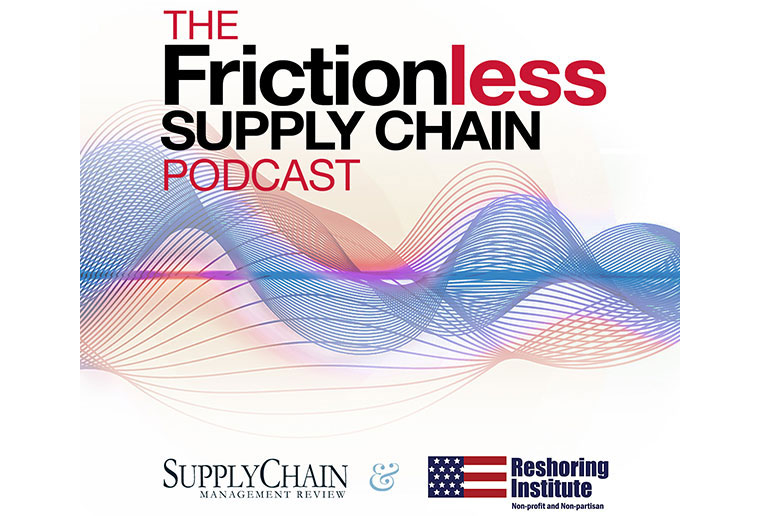While it's unlikely to pull the U.S. economy into recession, China has severely rattled global financial markets again.
According to Nariman Behravesh, chief economist at IHS Global Insight, the recent China-induced financial volatility is the result of a “nasty cocktail” of major structural problems, slowing growth, and inept policies.
“This has spooked the markets and undermined confidence in Chinese policy makers,” says Behravesh.
At the same time, U.S. logistics managers have been reminded of how dependent they are on Chinese manufacturing and Chinese shipping—especially in the Pacific Rim. Amid this uneasiness, a new paper has surfaced to “spook” shippers.
“Sea Strangulation: How the United States has become vulnerable to Chinese maritime coercion,” authored by political scientist and expert on “coercive diplomacy” Dr. Patrick Bratton and retired U.S. Navy captain Carl Schuster, both of Hawaii Pacific University, details a challenge from China that the U.S. is ill-prepared to meet.
The paper outlines serious threats as a result of an over-dependence on the ships of other nations—in particular China—and simultaneous vulnerability caused by a dearth of American-flagged container vessels. The U.S. merchant marine now numbers less than 100 vessels in international trade. These privately-owned ships, flying under the U.S. flag, play a key role in supplying our armed forces overseas and delivering commercial goods at home.
The People's Republic of China, by contrast, has nearly doubled its commercial fleet since 2010, with more than 3,900 ships now flying the Chinese flag.
Despite these critical vulnerabilities, the authors note, some special interests in Puerto Rico and elsewhere are pushing hard to modify or completely eliminate the Jones Act and the U.S. Maritime Security Program (MSP), which together provide incentives for private companies to build, operate and maintain U.S. ships flying under the U.S. flag.
The Jones Act requires goods shipped from one U.S. port to another to use U.S.-flagged ships. Critics claim this inflates shipping costs because U.S.-flagged ships pay better wages and must follow stricter environmental and safety regulations than ships flying “flags of convenience.”
These ships are owned in one country but registered in another—typically, countries with low wages and lax regulation, such as the Cayman Islands, Liberia, Mongolia or Myanmar.
U.S.-flagged ships, however, are more efficient and better suited for modern intermodal transportation, say Bratton and Schuster, who also point out that the U.S. General Accounting Office recently studied the expense of shipping goods on U.S.-flagged ships to Puerto Rico and was unable to substantiate claims of higher costs.
While cost figures are in dispute, say Bratton and Schuster, it's indisputable that cutting back on the MSP and America's commercial shipbuilding capacity reduces the ships, supplies and manpower the U.S. might need to address a military or foreign policy crisis.
“The best and perhaps the only way we can counter the threat of ‘sea strangulation' is to strengthen and expand the U.S. merchant marine,” write Bratton and Schuster. “In contrast, an over-dependence on flags of convenience carriers and ships belonging to China or other nations that may test us could lead to hardship for those who live and serve under the flag of the United States.”
The authors maintain that along with cyber attacks and espionage, China is developing a “blue water navy” and new Chinese defense installations on the Spratly Islands now pose a threat to 40 percent of the world's shipping. However, few people realize that China does not need to launch a naval attack or conduct a blockade to harm us.
“The economic power of their huge merchant marine, which gives them the ability to control shipping rates and service, has the potential to wreak havoc on our economy,” says Don Marcus, president of the International Organization of Masters, Mates and Pilots, the union that represents sea captains and deck officers on U.S.-flagged vessels.
“This is not the time to abandon American ships,” Marcus adds. “This is a time we should be countering the threat of Chinese sea power by ensuring that we have a merchant marine capable of supporting our economic independence, as well as our military forces overseas.”
SC
MR

Latest Supply Chain News
- Tips for CIOs to overcome technology talent acquisition troubles
- There is still work to do to achieve supply chain stability
- Blooming success: The vital role of S&OE in nurturing global supply chains
- Supply chain salaries, job satisfaction on the rise
- How one small part held up shipments of thousands of autos
- More News
Latest Podcast

 Explore
Explore
Topics
Latest Supply Chain News
- Tips for CIOs to overcome technology talent acquisition troubles
- There is still work to do to achieve supply chain stability
- Blooming success: The vital role of S&OE in nurturing global supply chains
- Supply chain salaries, job satisfaction on the rise
- How one small part held up shipments of thousands of autos
- Investor expectations influencing supply chain decision-making
- More latest news
Latest Resources

Subscribe

Supply Chain Management Review delivers the best industry content.

Editors’ Picks





